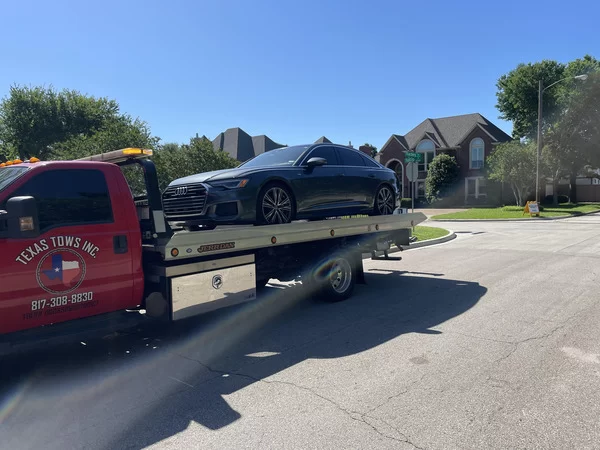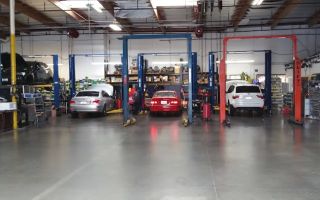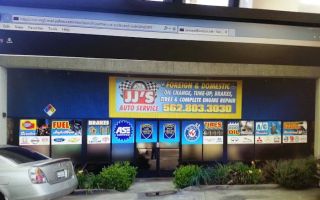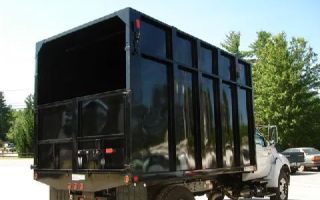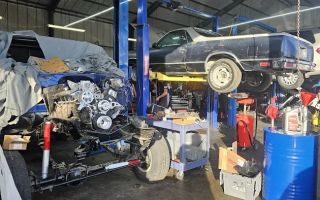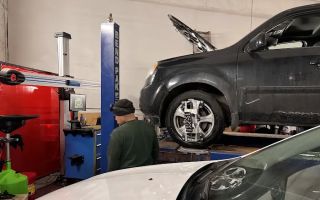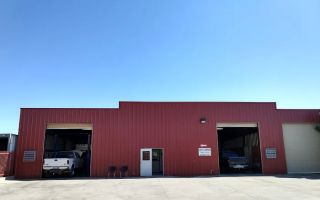Understanding Emergency Towing Pricing: What Affects the Cost of Towing Services?
1. The Importance of Knowing Emergency Towing Prices
Imagine you're stuck on the side of the road after your car breaks down in the middle of nowhere. It's late at night, you're stranded, and you need immediate help. The first thing that comes to mind is calling a towing service to get your car to safety. But when you make the call, one of the most pressing questions that pops up is: "How much is this going to cost me?" This is where understanding emergency towing pricing becomes essential.
When you're in a tough spot, knowing how towing pricing works can save you a lot of stress. Towing prices can vary significantly depending on factors like location, type of vehicle, and the specific service required. Having a clear idea of what to expect can help you make informed decisions, avoid unnecessary surprises, and even negotiate for a better price.
In this article, we’ll explore the factors that influence emergency towing pricing, how towing companies calculate their fees, and share some real-life examples that shed light on how pricing works in the towing industry. By the end, you’ll have a better understanding of what to expect the next time you need emergency towing services.
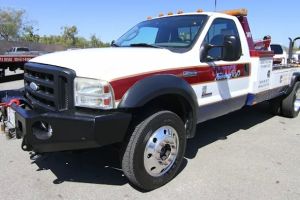
United Towing Service Inc.
26170 Adams Ave, Murrieta, CA 92562, USA
2. How Towing Companies Determine Their Prices
The pricing for emergency towing can vary widely, and it’s important to understand the different factors that influence the cost. Towing companies take into account several variables when calculating the final price, including the following:
- Distance Traveled: One of the main factors that affect towing prices is the distance the tow truck needs to travel to reach your location. Most companies charge a base fee for the initial service, which typically covers the first few miles of towing. After that, an additional per-mile fee is added. For example, a local tow might cost $75 for the first 5 miles, with an additional $2-$5 per mile after that.
- Time of Day: Towing services are often more expensive during certain times, such as after-hours, on weekends, or during holidays. If you need emergency towing during non-business hours, you might be charged an after-hours fee, which can range from 20% to 50% more than regular pricing.
- Type of Vehicle: The type of vehicle being towed can also impact pricing. Towing a standard sedan is typically less expensive than towing a large SUV, truck, or a luxury vehicle. Some towing companies charge extra for towing larger vehicles because they require more specialized equipment and more manpower.
- Location: The location where you need to be towed can also play a role in pricing. For instance, towing services in urban areas might cost more due to higher overhead, while towing services in rural or less-populated areas may have additional fees due to longer travel distances or the lack of nearby towing companies.
Understanding these factors can help you anticipate how much you might need to pay when calling for emergency towing services. Keep in mind that different towing companies have different pricing structures, so it’s always a good idea to ask for an estimate before you agree to the service.
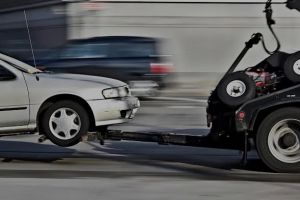
J & J Towing
4560 N Webster Ave, Perris, CA 92571, USA
3. Real-Life Case Studies: Towing Costs in Different Scenarios
Let’s take a look at a couple of real-life examples to understand how emergency towing pricing works in various situations:
- Scenario 1: Towing a Sedan in a Major City: John’s car broke down in the middle of downtown, and he needed a tow to the nearest auto repair shop. After calling a towing service, he was quoted a base fee of $50 for the first 5 miles, and $3 per mile after that. Since the shop was 10 miles away, his total towing cost ended up being $80—$50 for the base fee and $30 for the 10-mile tow. It was a typical towing scenario in a busy city, with a moderate price.
- Scenario 2: Towing a Large Truck in Rural Areas: Sarah’s large pickup truck broke down on a rural highway late at night. She called for emergency towing, and the company quoted her a base fee of $100 to come out to her location, plus $5 per mile for the 30-mile tow. In this case, the final cost of her tow came to $250—$100 for the service call, $150 for the 30-mile tow, and an additional $10 for the after-hours surcharge.
These scenarios highlight how towing prices can vary depending on distance, vehicle size, and time of day. It’s clear that towing prices are not one-size-fits-all and can fluctuate based on the specific circumstances surrounding each situation.
4. How to Minimize Towing Costs in an Emergency
While there’s no way to avoid towing costs entirely, there are a few strategies that can help minimize your expenses when you find yourself in an emergency situation:
- Know the Towing Companies in Your Area: Familiarize yourself with reputable towing companies in your area and their pricing structures. Some companies may offer flat-rate pricing or discounts for repeat customers, which can help reduce costs during an emergency.
- Choose the Nearest Towing Service: The closer the tow truck is to your location, the less you will have to pay for mileage. If possible, always choose a towing company that is located nearby, especially if you are in a city or densely populated area.
- Consider Roadside Assistance Plans: Many car insurance companies offer roadside assistance services as part of their coverage. Roadside assistance plans typically cover the cost of towing to a nearby service station, often at a discounted rate. If you don’t already have roadside assistance, consider signing up for a plan, as it can save you money on towing fees in the long run.
- Plan Ahead for Emergencies: Keep a list of trusted towing companies in your phone and consider asking for quotes in advance. This way, if an emergency occurs, you won’t be scrambling to find a service provider and can make a quick, informed decision.
5. Additional Fees to Watch Out For
In addition to the standard towing charges, there are several other fees that you may encounter when calling for emergency towing services. Understanding these fees can help you avoid any unexpected surprises:
- Storage Fees: If your vehicle needs to be stored at a towing company’s facility after it has been towed, you may be charged storage fees. These fees can add up quickly, especially if your car is stored for multiple days. Be sure to ask about storage fees when you call for towing services and try to retrieve your vehicle as soon as possible.
- Impound Fees: If your car is towed because it was parked illegally or for another reason related to law enforcement, you may face additional impound fees. These fees vary by location but can range from $50 to several hundred dollars.
- After-Hours Fees: As mentioned earlier, towing companies often charge more for after-hours services, especially if your car is towed late at night or during weekends. These charges can be an additional 20% to 50% more than the standard rate.
To avoid any confusion, always ask the towing company for a complete breakdown of all potential fees before agreeing to the service. Knowing these extra charges upfront can help you make a more informed decision.
6. Where to Find Reliable Towing Services
If you ever find yourself in need of emergency towing services, it’s important to choose a reliable and trustworthy company. One such company you can trust is Rescue & Towing, which offers affordable and professional towing services in your area. With their reputation for excellent customer service, transparent pricing, and quick response times, they can help you in any roadside emergency. Always do your research and pick a towing company that you feel comfortable with, as the quality of service you receive can greatly impact your experience during an emergency.

